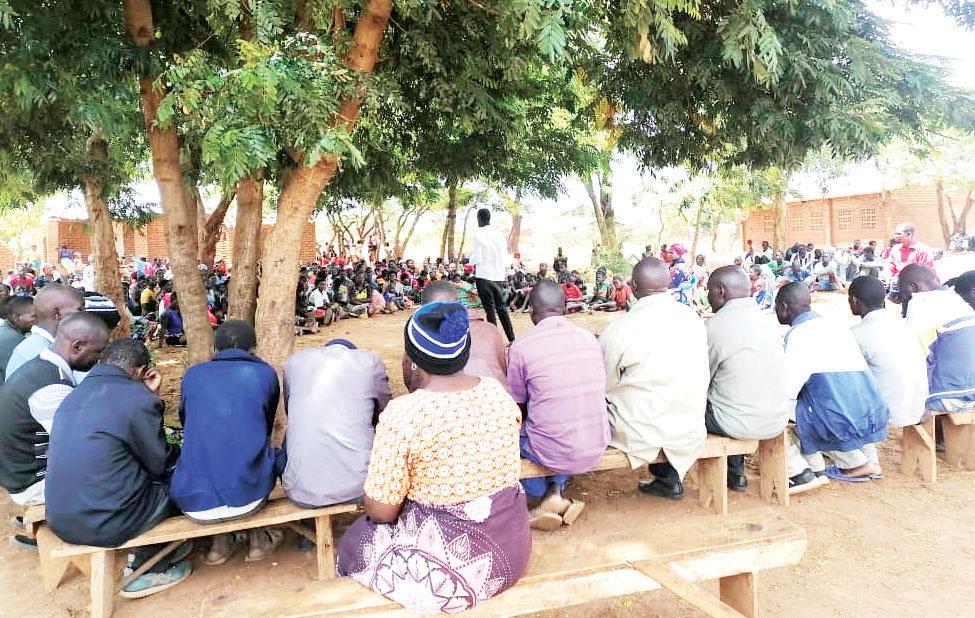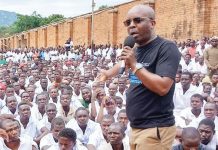Africa-Press – Malawi. Ground workers at Lilongwe City Council’s Old Town Hall spend most of their working hours playing draughts and bawo instead of collecting garbage that is forming anthills in the city.
This means that the council is being defrauded of its hard-earned financial resources through salaries paid to personnel that do not do their work. They are not the only culprits.
A visit to Capital Hill established that even high-ranking officials in various government ministries, departments and agencies (MDAs) are in the habit of playing petty computer games such as draughts and zuma, among others, during hours they were supposed to be working.
The low-ranking officials such as ground workers, cleaners and messengers do not want to be outdone either. They, too, have found solace in local games such as bawo and ntchuwa while female employees usually take their time gossiping or hair plaiting or painting fingernails inside their offices.
This is commonplace in all the MDAs right from the Capital Hill in Lilongwe down to Chitipa, Nkhotakota, Mchinji and Nsanje. But this is not the case in developed countries such as China. In China, a ground labourer or cleaner reports for duties as early as 5 in the morning while officers get to work at 6.
Once in a while, they will move from one office to the other. But that is primarily to deliver or exchange official documents. They will not break early for lunch let alone sneak out of office before the official closing time. They only knock off after finishing their day’s assignments.
National Initiative for Civic Education (Nice) Trust acting Executive Director Gray Kalindekafe posits that the civil service is a critical contact between the government and the people in the area of good governance and service delivery. Kalindekafe says the success of any government depends on an efficient civil service.
“The civil service remains very crucial and critical to national development and democratic stability. In developing states, the civil service is a vital part of government machinery and its role is decisive in ensuring the stability of governance, its quality and ability to perform and push the frontiers of national development,” he states.
Kalindekafe recalls that the civil service inherited from the pre-democracy era was effective, efficient, offered a socially responsible service and was well respected and regarded by the political class.
An essay titled ‘Analysing Civil Services and National Development in Nigeria Politics’ states that the strategic relevance of civil service in policy formulation and implementation is wide.
The essay says in the developing societies, especially in the immediate past independence era, the public service assumed the pivotal roles as the vehicle of development.
But owing to the misinterpretation and misunderstanding of the spirit behind multiparty democracy, Malawian civil servants apparently think they no longer have the role to play in driving the social and economic development of the nation.
They have instead redirected their energies to drinking free tea in offices and playing games before calling it a day two hours before the actual knock-off time. And once in a while, they would organise dances and performances to feature during national events such as the Independence Day celebrations.
The game-playing habit among civil servants is robbing government and Malawians at large the much-needed human capital and resources for the realisation of the socio-economic agenda of the nation. Human capital increases the nation’s capacity to produce goods and services.
However, the human capital in Malawi, which refers to the knowledge, skillsets and motivation people have to provide economic value, has constantly been faced with challenges that undermine its capacity to serve as an agent of national development.
Such challenges include those of achieving technical competence, coping with public expectation and change, behaving ethically and maintaining constitutional order.
The truth is that all these problems are inextricably linked to failure of the civil service to play its rightful role in system maintenance and continuity.
But it is not only the civil servants that are letting this nation down. Nice District Civic Education Officer for Dowa and Lilongwe Rural, Hajira Ali, notes that citizens too have let the country down.
Speaking at an awareness rally in Mbingwa Village in Traditional Authority Malili on the outskirts of Lilongwe City, Ali attributed Malawi’s stagnation in poverty to non-stop politicking both by politicians and citizens themselves.
“Most productive and energetic Malawians spend most of their time arguing over political matters instead of collaborating in developing their areas. How can we develop a country with such an attitude?” she queried.
The meeting, which dwelt on principles of democracy and the Malawi 2063 development blueprint, attracted traditional leaders, Area Development Committee members, religious and political leaders and citizens themselves. Ali emphasised the need for politicians and ordinary citizens to live in tolerance to enable meaningful citizen participation in development.
For More News And Analysis About Malawi Follow Africa-Press






